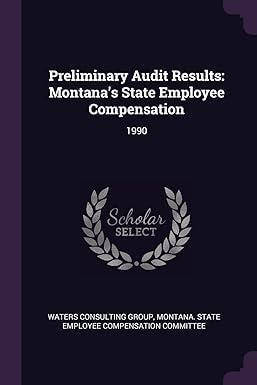Question
Cost and Pricing: The Case of SweetTooth Candies Business/Analytical Learning Objectives: Determine variable(s) of interest, identify and organize relevant information for a problem with multiple
Cost and Pricing: The Case of SweetTooth Candies Business/Analytical Learning Objectives:
Determine variable(s) of interest, identify and organize relevant information for a problem with multiple components
Recognize and calculate fixed costs and variable costs
Use Excel to perform calculations
Compute costs per unit and weight per unit from bulk costs and bulk weights
Suggest a price/lb factoring in costs, market structure, and competitors pricing
Introduction
Rashed just bought a self-serve candy business. This shop, SweetTooth Candies, serves a large variety of candies, including chocolates, hard candies, jelly beans and gummies. The customer fills an empty bag with their choice of candies and then it is weighed at the checkout. All candies are sold for the samepriceper pound to customers.
Rashed needs to decide how much to charge for each pound of product. However, he has discovered that determining this answer is not so easy because many of the candies have different costs. Based on his initial orders and invoices, Rashed has gathered data on the costs and weights of the products he stocks. Several of the candies have the same costs, so he has grouped them together into types. Refer to the candycost worksheet of the data file for this information.
Next, Rashed knows that he cannot just take an average price of the candies. Instead, he invites 25 family and friends to the shop just prior to its opening and tells them to get themselves whatever they would like. Rashed weighs each ingredient they put into their bag, so he knows exactly how much of each type of candy each person chooses. The details of these measurements are shown in the candydata worksheet of the data file provided.
Deliverables:
Perform the necessary analysis and research to answer the following set of questions. The output must be a professional looking report and an Excel spreadsheet. Remember to format all values to the appropriate number of decimal places. Add column labels to organize and present you calculations. Use formulas to do all your calculations, and do not change them into values (I should be able to check your formulas and calculations).
Adapted from DePaolo et al (2018), Weight-based cost estimation using Excel: candy, yogurt, and salad applications. Journal of Business Cases and Applications.
| Table 1: "candycost" dataset | |||
| Component | Bulk Cost | Cost per Ibs | Cost per Unit |
| Cholocate covered nuts | $12.96 / 2 U.S. lbs | $6.48 | n/a |
| Gourmet jelly beans | $24.50 / 5 U.S. pounds | $4.90 | n/a |
| Gummy candies | $13.50 / 5 U.S. pounds | $2.70 | n/a |
| Sour hard candies | $16.50 / 5 U.S. pounds | $3.30 | n/a |
| Individually wrapped candies | $14.99 / 5 U.S. pounds | $3.00 | n/a |
| M&Ms, Skittles, Reeses pieces, etc. | $156.50 / 25 U.S. pounds | $6.26 | n/a |
| Plastic bags to hold candy | $35 / 1000 bags | n/a | $0.04 |
| Twist ties to secure bags closed | $ 10 / 2000 | n/a | $0.01 |
| Average Cost per unit lbs | $4.44 |
11) Which market structure do bulk candy stores most closely resemble? Explain your answer.
12) Compare Rasheds cost per pound to the price per pound that is charged at similar candy shops. Make an inference about profit margin based on this cost and price information.
Step by Step Solution
There are 3 Steps involved in it
Step: 1

Get Instant Access to Expert-Tailored Solutions
See step-by-step solutions with expert insights and AI powered tools for academic success
Step: 2

Step: 3

Ace Your Homework with AI
Get the answers you need in no time with our AI-driven, step-by-step assistance
Get Started


